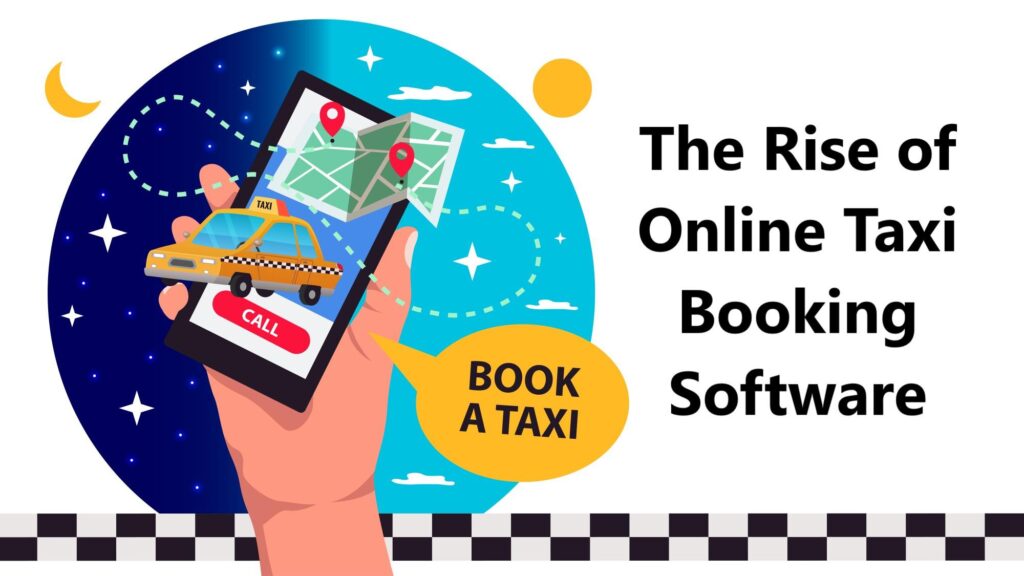Introduction:
In recent years, the taxi industry has undergone a remarkable transformation, all thanks to the rise of online taxi booking software. Gone are the days of hailing a taxi on the street or waiting endlessly for one to arrive. With the advent of Uber clone apps and similar platforms, the taxi business has witnessed a revolution in how it operates, providing convenience and efficiency to both passengers and taxi owners. In this blog, we explore how online taxi booking software has become a game changer for the taxi industry, backed by relevant statistics and insights.

The Shift Towards On-Demand Mobility Solutions:
The taxi industry has experienced a significant paradigm shift, with the emergence of on-demand mobility solutions. According to a report by Statista, the global ride-hailing market was valued at $75.39 billion in 2020 and is projected to reach a staggering $126.5 billion by 2025, reflecting the immense potential of this industry. This rapid growth is a testament to the fact that more people now prefer the convenience of booking rides with just a few taps on their smartphones.
Improved Efficiency and Fleet Management:
Online taxi booking software has revolutionized fleet management, making it more efficient and profitable for taxi business owners. With real-time tracking and data analytics, taxi operators can optimize their fleet, ensuring that vehicles are in service when and where they are needed the most. According to a survey conducted by McKinsey, ride-hailing services reported a 20-30% increase in fleet utilization after implementing such solutions, leading to higher revenues and reduced downtime.
Enhanced Customer Experience:
The key to the success of online taxi booking software lies in the enhanced customer experience it offers. Passengers can now book rides within seconds, track their driver’s location in real-time, and even estimate the fare before starting the journey. This level of convenience has resulted in increased customer satisfaction and loyalty. According to a survey by PwC, 75% of users prefer ride-hailing apps due to the convenience they provide, while 68% of users believe ride-hailing apps offer better value for money compared to traditional taxis.
Safety and Transparency:
Safety has always been a paramount concern for both passengers and taxi operators. Online taxi booking software addresses this concern by providing transparency and accountability. Passengers can view the driver’s details before the ride, rate drivers based on their experiences, and share ride details with friends and family for added security. This focus on safety has led to increased trust in ride-hailing services. According to a survey conducted by The Rideshare Guy, 82% of riders reported feeling safe while using ride-hailing apps.
Job Creation and Economic
Impact The rise of online taxi booking software has not only transformed the taxi industry but also created new economic opportunities. With the surge in demand for ride-hailing services, more drivers have entered the market, finding flexible job opportunities. According to a study by Uber, over 50 million people globally earn income through its platform, illustrating the significant economic impact of these technologies. Additionally, the International Finance Corporation (IFC) estimated that ride-hailing services have the potential to create 1.5 million new jobs by 2030 in emerging markets.

Sustainability and Environmental Benefits:
Traditional taxi services were often associated with high emissions and pollution. However, online taxi booking software has introduced the concept of carpooling and ride-sharing, reducing the number of empty vehicles on the roads and promoting sustainability. According to a study by the International Council on Clean Transportation (ICCT), ride-hailing services have the potential to reduce carbon dioxide emissions by 6-10% in major cities. Embracing eco-friendly practices, ride-hailing companies can contribute to a greener future.
Online taxi booking software operates through a user-friendly mobile app or website. Passengers can enter their pickup and drop-off locations, view fare estimates, and select the type of vehicle they prefer. Once confirmed, the app connects passengers with nearby drivers, and passengers can track their ride in real-time.
Yes, ride-hailing services prioritize safety. Users can view driver profiles, read reviews, and share ride details with friends or family, enhancing the overall safety of the journey. Furthermore, payment is cashless, reducing potential risks associated with handling cash.
Absolutely! Taxi business owners can leverage online taxi booking software to optimize their operations, reduce idle time, and increase profits. The software provides valuable data insights, helping owners make informed decisions about fleet management and marketing strategies.